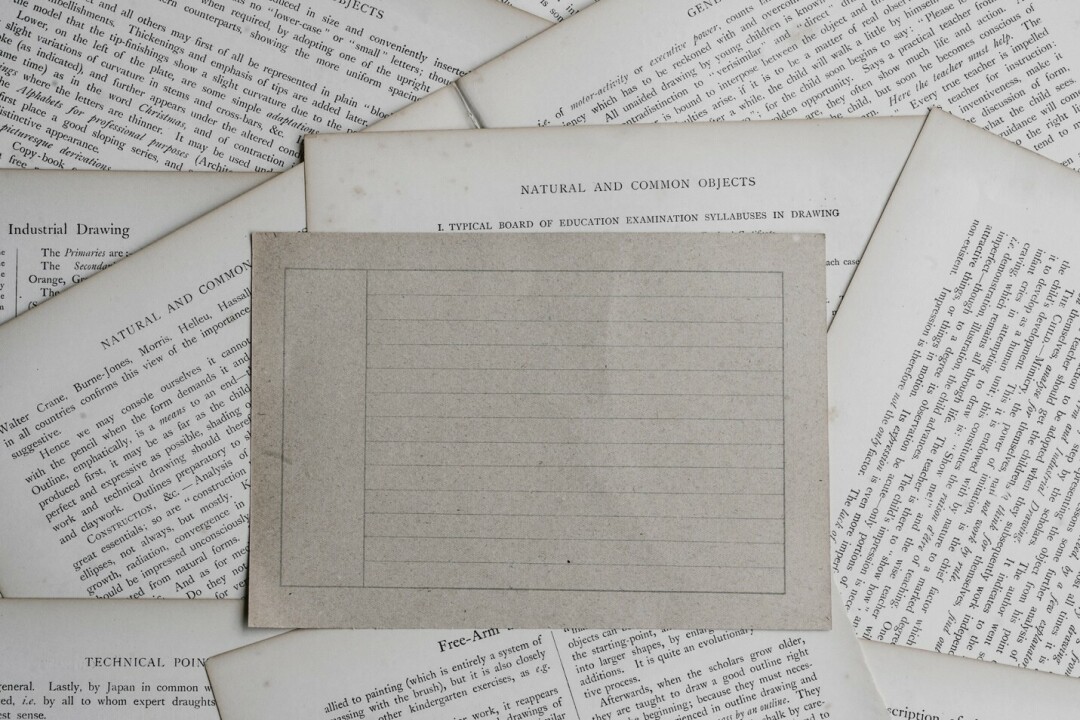Choosing a Topic for a Research Paper or Presentation
Thursday Oct. 20th, 2022

When it comes to choosing a topic for a research paper or presentation, the options can seem endless. How do you know which one is the right fit for you? And more importantly, how do you make sure that your topic will be engaging for your audience? In this blog post, we will explore some tips for choosing a research topic.
Why it's important to choose a relevant topic
The best research papers are those that are based on a topic that is both interesting to the writer and relevant to the class or assignment. A paper that is not properly researched or that does not address the prompt in an insightful way is likely to receive a failing grade.
Furthermore, a paper that is based on a topic that is not of interest to the writer is likely to be poorly written and lack the passion that is necessary to persuade readers. Therefore, it is essential to choose a topic for your research paper that you find appealing and that will allow you to produce a high-quality, well-researched paper.
How to find a topic that is fun
There are a number of ways to find a research topic that you're passionate about. One way is to look for topics that are relevant to your field of study. Another way is to look for subjects that are currently being researched by other scholars. However, you can also look for matters that have been previously researched but that you feel have not been adequately explored. Whichever method you choose, the important thing is to ensure that you select a topic that genuinely interests you.
Checking your research for plagiarism
As any student knows, plagiarism is a serious academic offense. Not only can it result in a lower grade on an assignment, but it can also lead to disciplinary action from the school. Given the stakes, it's important to make sure that your work is free of any plagiarized material. While there are a number of ways to do this, one of the most effective is to use a plagiarism checker for students. These tools search through online databases and compare your work to others that have been published. If they find any matches, they will flag them for you so that you can make the necessary changes.
While no plagiarism checker is 100% accurate, they can be a useful tool for ensuring that your work is original.
Tips for narrowing down your topic selection
1. Know your audience: Before you start researching, it's important to know who your audience is. This will help you narrow down your topic selection to something that will be relevant to them.
2. Know your purpose: What are you hoping to accomplish with your research? Once you know your purpose, you can narrow down your topic selection to something that will help you achieve that goal.
3. Do some preliminary research: Once you have a general idea of what you want to research, do some preliminary research to see what's already been done on the topic. This can help you narrow down your focus and make sure you're not duplicating someone else's work.
4. Consider the scope of the project: How much time do you have to dedicate to this project? How much information do you need? These factors will help you determine how narrow or broad your focus should be.
5. Choose a manageable topic: It's important to choose a topic that is both fun and manageable. If the topic is too broad, you'll likely get overwhelmed; if it's too narrow, you may not be able to find enough information. Find a happy medium between the two extremes.
6. Be flexible: As you start researching, be prepared to adjust your focus as necessary. As new information arises, your perspective on the topic may change, which could result in needing to narrow or broaden your focus. Be flexible and willing to change as needed.
7. Get feedback: Once you've chosen a topic and started researching, get feedback from others who are knowledgeable about the subject matter. They may be able to provide insights that help you further refine your focus. following these tips should make narrowing down your research topic selection much easier and less daunting!
How to make sure your research is thorough
Research is a crucial part of writing any paper, but it can be easy to get overwhelmed by the sheer volume of information that is available. How can you be sure that you are looking at all of the relevant data? And how do you know when you have enough information to start writing? Here are a few tips to help you make sure your research is thorough.
Start by brainstorming a list of keywords related to your topic. This will help you focus your search and make sure you are looking at all of the relevant material.
Next, use those keywords to search for articles, books, and other sources. Be sure to look at a variety of different sources, including both primary and secondary sources.
Once you have gathered a significant amount of material, take some time to read through it and take notes. As you read, look for patterns and common themes. This will help you start to see the bigger picture and identify the most important points.
Finally, don't forget to check your facts! Make sure all of the information you are using is accurate and up-to-date. Nothing ruins a good paper faster than inaccurate data.
Conclusion
Choosing a topic and conducting thorough research can be challenging, but following these tips should make the process a bit easier.
John Marlow is a freelance writer and researcher with a passion for education. He enjoys helping students improve their writing and research skills, as well as assisting them in finding the right topics.
| Tweet |